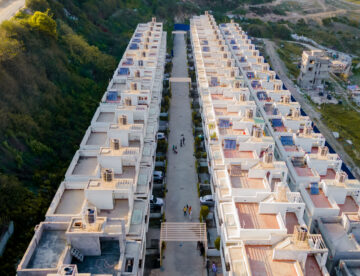Foreign Direct Investment (FDI) plays a critical role in shaping Nepal’s real estate sector, creating opportunities for economic growth and infrastructure development. In recent years, Nepal has become a promising destination for investors looking to capitalize on emerging markets, especially in real estate. While the government has taken steps to attract foreign investments, challenges remain in fully harnessing FDI’s potential to transform the sector.
Why FDI is Important for Nepal’s Real Estate Market
FDI is a significant driver of economic growth. For Nepal, a country still developing its urban infrastructure and housing markets, foreign investment injects much-needed capital into real estate. This leads to better housing projects, commercial spaces, and infrastructural development.
One of the primary benefits of FDI is the infusion of capital that helps overcome domestic investment shortages. Nepal, with its limited financial resources, struggles to fund large-scale real estate projects solely through local investment.
Foreign investors bring in the capital needed for larger residential complexes, office spaces, and commercial hubs. This not only supports the real estate sector but also fuels employment and related industries such as construction and materials manufacturing.
Moreover, FDI allows for the transfer of technology and expertise. Real estate in Nepal has traditionally been a local affair, but with foreign investments come international standards in construction, design, and urban planning. This knowledge transfer raises the quality of real estate projects, making them more competitive with neighboring countries like India and China.
Government Policies and Initiatives
Recognizing the importance of FDI in driving real estate growth, the Nepalese government has introduced several policies aimed at making the sector more attractive to foreign investors. The Foreign Investment and Technology Transfer Act was amended to ease restrictions on foreign investments in real estate.
Additionally, the government’s decision to allow foreign nationals to invest in certain sectors of real estate, such as commercial spaces and large residential projects, has opened new doors.
Special Economic Zones (SEZs) and Industrial Estates are other significant initiatives. These zones are designed to attract foreign investors by offering incentives like tax holidays, easier access to land, and streamlined bureaucratic processes.
The Kathmandu Valley and cities like Pokhara and Chitwan have been seeing rising interest due to such initiatives, especially in commercial real estate and hospitality sectors.
However, it’s not all smooth sailing. The FDI process in Nepal can still be complex, with bureaucratic red tape and unclear land ownership laws acting as deterrents. Ensuring transparency in land acquisition and making the legal framework investor-friendly will be crucial for maximizing the potential of FDI in real estate.
Opportunities and Challenges for FDI in Nepal’s Real Estate Sector
Nepal’s real estate market offers several opportunities for foreign investors, particularly in urban housing, hospitality, and commercial projects.
With the growing urban population, there is increasing demand for high-quality housing and commercial spaces, making real estate a lucrative sector for investment. Moreover, tourism in Nepal is booming, driving demand for hospitality real estate, including hotels and resorts. Foreign investment can significantly boost these developments.
However, despite the opportunities, challenges remain. Land acquisition laws in Nepal are still somewhat murky, and the process of obtaining land for large projects can be cumbersome.
Another key challenge is the lack of proper infrastructure. While the government is working to improve transportation and utilities, many areas outside major cities like Kathmandu still face infrastructure gaps that can deter investors.
Additionally, political instability and frequent policy changes have historically hindered the flow of foreign investments into Nepal. Investors are often cautious due to the risk of policy reversals or project delays. Addressing these challenges will be essential for Nepal to remain competitive in attracting FDI.
The Future of FDI in Nepal’s Real Estate Sector
The future looks promising for Foreign Direct Investment in Nepal’s real estate sector, provided that the government continues to reform policies and improve infrastructure.
With a growing urban population, increasing demand for high-quality residential and commercial properties, and Nepal’s strategic location between India and China, the real estate market is poised for growth.
As Nepal works towards becoming a middle-income country, foreign direct investment will be essential to its real estate sector’s transformation. It will help drive urban development, create employment, and improve the overall standard of living.
Nepal has the potential to become a key player in the South Asian real estate market, but it needs to ensure that its policies, infrastructure, and legal framework are supportive of foreign investors.
Recommended reading: The Importance of Proper Property Valuation in Nepal Before Buying or Selling






